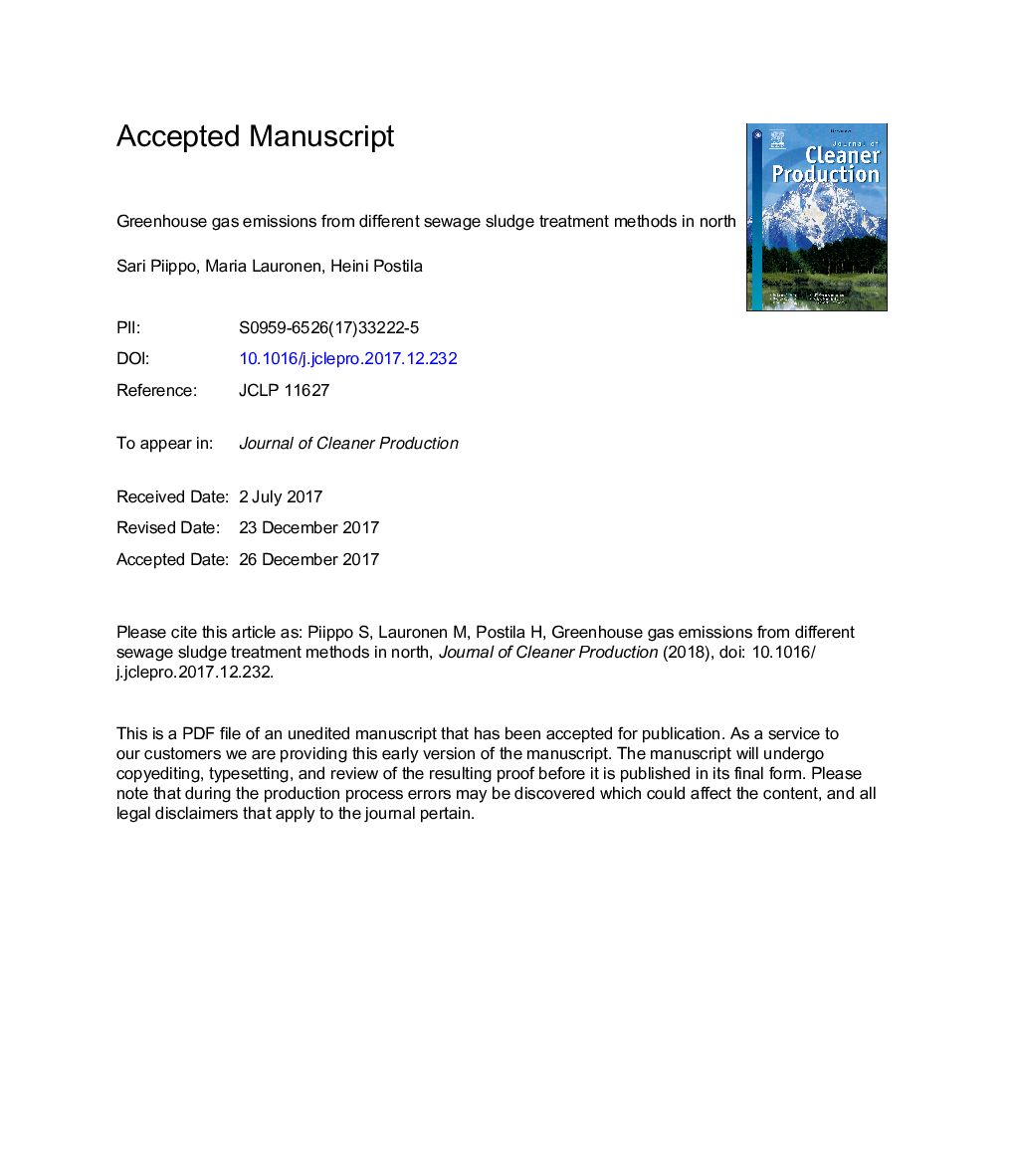| Article ID | Journal | Published Year | Pages | File Type |
|---|---|---|---|---|
| 8098732 | Journal of Cleaner Production | 2018 | 26 Pages |
Abstract
The most sustainable method for treating sewage sludge depends strongly on the situation and local circumstances. In sparsely populated northerly areas are demanding boundary conditions, e.g. cold and long winter, long transport distances and low amounts of generated sludge. In this study, commonly used calculators and emissions coefficients for calculating the greenhouse gas (GHG) emissions from sewage sludge treatment methods were assessed to create a calculator suitable for the Northern Finland context. The calculator was then used to determine which sewage sludge treatment method (composting, anaerobic digestion (AD), incineration (with and without thermal drying)) resulted in the lowest emissions of the GHG gases in different situations in Northern Finland. GHG gases included carbon dioxide (CO2; including biobased), methane (CH4) and nitrous oxide (N2O), measured as carbon dioxide equivalents (CO2eq). According to the calculator, AD generated the least CO2eq emissions of all treatment methods studied. The second best option was incineration of sludge without thermal drying, while the third best was composting or incineration of sludge after thermal drying with e.g. fossil or other fuels. Most of the emissions were generated from the treatment process itself and the share of emissions generated during transport was minimal, despite the long transport distances when all CO2 emissions (incl. biobased) were considered. The role of users of the end-products and the possibility to use the CO2 generated were highly important when considering environmental perspective. These results can be utilised when selecting the locally most suitable method. In future, some of the treatment methods (i.e. AD, incineration) with CO2 capture could be considered carbon sinks, as they also remove biobased CO2 emissions.
Related Topics
Physical Sciences and Engineering
Energy
Renewable Energy, Sustainability and the Environment
Authors
Sari Piippo, Maria Lauronen, Heini Postila,
